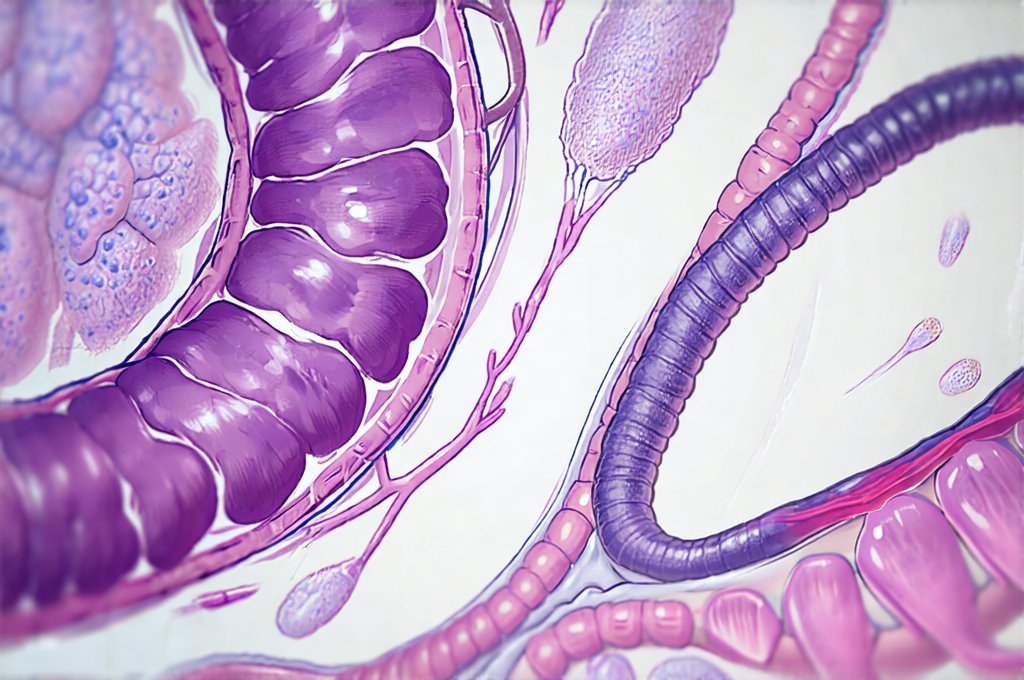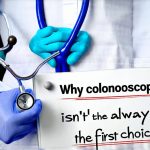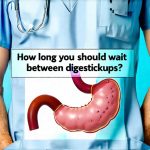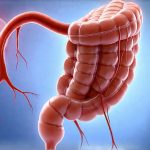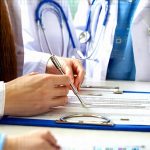Gastroesophageal reflux disease (GERD) is a surprisingly common condition affecting millions worldwide. It’s more than just occasional heartburn; it’s characterized by persistent acid reflux that can lead to significant discomfort and, over time, potentially damage the esophagus. Many individuals managing GERD are proactive about their health, regularly seeing gastroenterologists and undergoing various tests to monitor their condition and adjust treatment plans. This often leads them to encounter questions surrounding other diagnostic procedures, such as colonoscopies – a test primarily associated with colorectal cancer screening but which can seem unrelated to upper gastrointestinal issues like GERD. Understanding the connection (or lack thereof) between these two seemingly disparate areas of digestive health is crucial for informed patient care and reducing unnecessary anxiety.
This article aims to demystify the relationship between GERD and colonoscopies, providing a comprehensive overview for patients living with this condition. We’ll explore why your doctor might recommend a colonoscopy alongside GERD management, what to expect during the procedure, how it differs from endoscopy (the more common test for GERD), and when you should consider having one – or not. The goal is to empower you with knowledge so you can confidently discuss this important preventative health measure with your healthcare team and make informed decisions about your overall digestive wellness. It’s vital to remember that a colonoscopy isn’t typically a standard part of GERD management, but there are specific circumstances where it becomes medically relevant.
Why Might a GERD Patient Need a Colonoscopy?
The primary purpose of a colonoscopy is colorectal cancer screening and the investigation of lower gastrointestinal symptoms like rectal bleeding, changes in bowel habits, or chronic abdominal pain. It’s not directly related to the upper digestive tract issues characteristic of GERD. However, several factors can prompt a gastroenterologist to recommend one for a patient also diagnosed with GERD. These aren’t about the GERD itself, but rather assessing overall gastrointestinal health and ruling out other potential conditions.
One key reason is age. Routine colorectal cancer screening typically begins at age 45 (though guidelines vary), regardless of whether someone has GERD. If a patient with GERD reaches this age – or beyond – their doctor will likely recommend a colonoscopy as part of preventative care, independent of their reflux symptoms. Another factor involves overlapping symptoms. Some symptoms associated with colorectal issues—like abdominal discomfort or changes in bowel habits—can mimic the effects of severe GERD or its related complications. A colonoscopy can help differentiate between these conditions and ensure an accurate diagnosis.
Furthermore, certain medications used to manage GERD – particularly proton pump inhibitors (PPIs) – have been linked, though controversially, to potential nutrient deficiencies or even increased risk of Clostridioides difficile infection. While the evidence is still evolving, a colonoscopy might be considered if a patient on long-term PPI therapy develops unexplained gastrointestinal symptoms suggestive of another underlying issue. It’s important to emphasize that this isn’t a routine screening triggered by PPI use but reserved for specific clinical scenarios where other causes need to be ruled out. Finally, some patients experiencing chronic GERD symptoms may have coexisting conditions affecting the lower GI tract which necessitate colonoscopic evaluation. Understanding what your cravings say about intolerances can also help understand underlying issues contributing to digestive discomfort.
Colonoscopy vs. Endoscopy: Understanding the Differences
Many people confuse colonoscopies and endoscopies because both involve inserting a flexible tube with a camera into the digestive system. However, they examine different parts of the digestive tract and are used for different purposes. An endoscopy (specifically upper endoscopy or esophagogastroduodenoscopy – EGD) is the procedure commonly used to diagnose and monitor GERD. It allows doctors to visualize the esophagus, stomach, and duodenum—the first part of the small intestine—to identify inflammation, ulcers, Barrett’s esophagus, or other abnormalities.
A colonoscopy, on the other hand, focuses on the large intestine (colon) and rectum. The scope is inserted through the anus, allowing for visualization of the entire colon to detect polyps, tumors, inflammation, or sources of bleeding. While an endoscopy looks upward from the esophagus, a colonoscopy goes downward into the lower digestive tract. This fundamental difference in target area dictates the preparation and what information each procedure provides. If you suspect a swollen tongue can tell about intolerances it is important to consult with your doctor.
The preparations also differ significantly. Endoscopy typically requires fasting for 6-8 hours before the procedure. Colonoscopy demands a much more rigorous prep involving a clear liquid diet for 1-3 days, along with strong laxatives to completely empty the colon. This extensive bowel cleansing is essential for optimal visualization during the exam and accurate polyp detection. Both procedures are generally well-tolerated, but their discomfort levels differ due to the preparation and areas examined.
Preparing for a Colonoscopy
If your doctor recommends a colonoscopy, thorough preparation is critical for a successful procedure. The goal is to completely clear the colon of fecal matter, allowing the physician to clearly visualize the intestinal lining. This process can be unpleasant, but it’s essential for accurate results and potentially life-saving polyp detection. Here’s what you should expect:
- Dietary Restrictions: Several days before the procedure, your doctor will likely advise a low-fiber diet, avoiding foods like nuts, seeds, raw fruits and vegetables, and whole grains. As you get closer to the exam date, you’ll transition to a clear liquid diet – including broth, clear juices (apple, white grape), water, and gelatin – for 1-3 days depending on your doctor’s specific instructions.
- Laxative Regimen: The most challenging part of colonoscopy prep is the laxative regimen. Your doctor will prescribe a strong laxative solution or tablets that you’ll need to drink or take according to a strict schedule. This causes frequent bowel movements, effectively clearing out your colon. It’s crucial to stay hydrated during this process.
- Medication Adjustments: Inform your doctor about all medications and supplements you are taking, including over-the-counter drugs. Some medications – like blood thinners or iron supplements – may need to be adjusted or temporarily stopped before the procedure. Understanding what bloating says about your food triggers is important for overall digestive health.
What to Expect During the Colonoscopy Itself?
The colonoscopy is usually performed as an outpatient procedure in a hospital or clinic setting. You’ll receive sedation, typically intravenous (IV) sedation, which makes you comfortable and relaxed during the exam. Most patients are lightly sedated, meaning they may be awake but feel drowsy and won’t remember much of the procedure afterward.
During the colonoscopy:
- You will lie on your side while the doctor gently inserts the colonoscope into your rectum.
- The scope is slowly advanced through the entire colon, allowing the physician to visualize the intestinal lining on a monitor.
- If any polyps are detected, they can usually be removed during the same procedure using small instruments passed through the colonoscope. This process is called polypectomy and helps prevent colorectal cancer.
- The entire exam typically takes between 30-60 minutes.
After the procedure, you’ll be monitored in a recovery area until the effects of the sedation wear off. You’ll likely experience some bloating or gas due to the air introduced during the colonoscopy, but this usually resolves quickly. Your doctor will discuss the findings with you and provide instructions for follow-up care. Considering what your cravings say about intolerances can help understand your body better.
When is Colonoscopy Definitely Not Related to GERD?
While we’ve discussed situations where a colonoscopy might be recommended alongside GERD management, it’s important to clarify when it’s not necessary. If your GERD is well-controlled with medication and you have no lower gastrointestinal symptoms (rectal bleeding, changes in bowel habits, abdominal pain), then a colonoscopy isn’t indicated solely because of your GERD. Routine screening guidelines based on age and family history are the primary drivers for colonoscopies.
Furthermore, if an endoscopy has recently been performed to evaluate your GERD and showed no signs of serious complications like Barrett’s esophagus or esophageal cancer, there is generally no need for a colonoscopy unless new symptoms develop or you reach the appropriate screening age. It’s crucial to have an open dialogue with your gastroenterologist to understand the rationale behind any recommended tests and ensure they are tailored to your specific health needs and risk factors. Remember that preventative care should be informed, personalized, and based on sound medical evidence – not assumptions. If you are concerned about what to know about soy intolerance reactions, consult with a doctor. It is also important to understand should you be worried about lectins in beans. Finally, it may be beneficial to learn what your nails reveal about food reactions to better understand the impact of food on your body.
Disclaimer: This information is for general knowledge and informational purposes only, and does not constitute medical advice. It is essential to consult with a qualified healthcare professional for any health concerns or before making any decisions related to your health or treatment.

